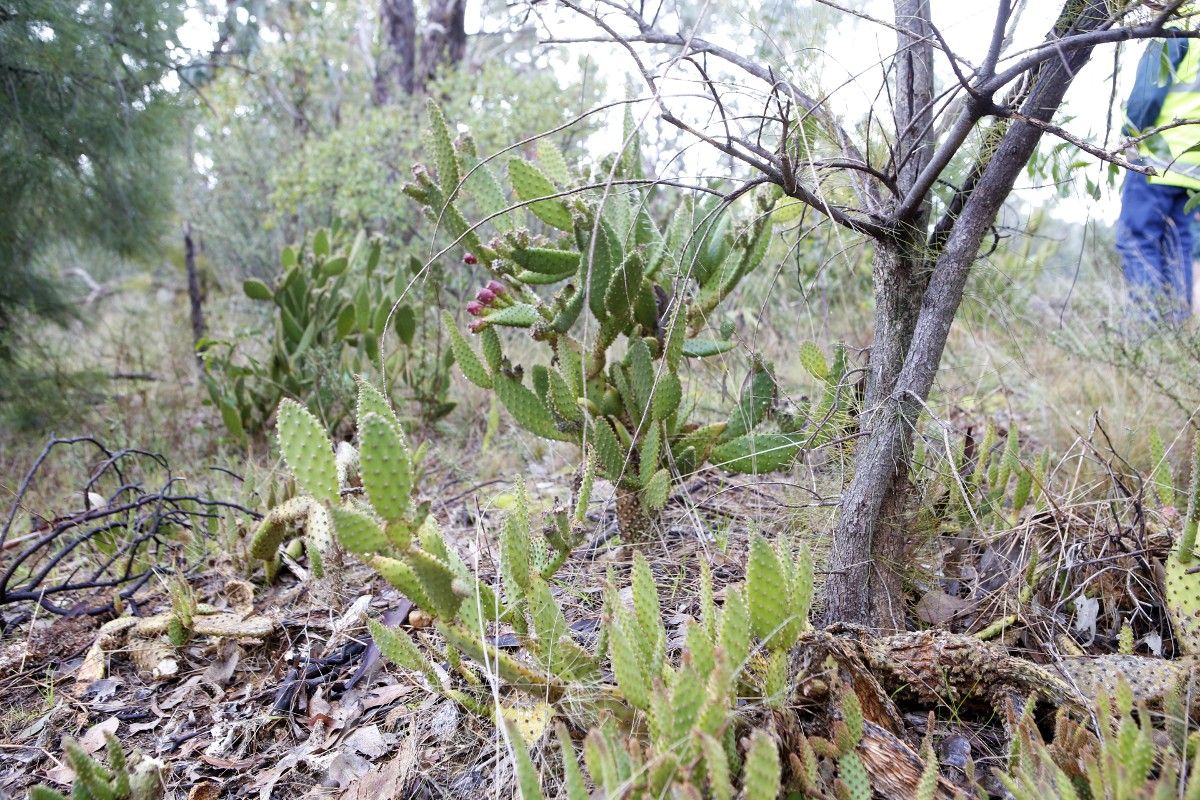Wagga Wagga residents who see any sign of cactus growing in reserves, roadsides or other public spaces are being encouraged to report it to Council.
Our Vegetation Management Officers recently discovered a patch of blind cactus (Opuntia rufida) on Willans Hill.
Blind cactus, also known as bunny ears, is a native plant from northern Mexico, introduced into Australia as an ornamental plant.

Environmental Management Team Leader Tony Phelps said the plant is a state priority weed which must not be sold or bought anywhere in NSW.
“Blind cactus is extremely dangerous with its barbed bristles and invasive nature,” Mr Phelps said.
“It can have a big environmental impact if it gets established in natural areas, as it forms dense thickets and out-competes native plants, reducing habitat for native species.
“It also competes with pasture plants reducing productivity and can restrict recreational activities such as bushwalking and camping.”

The barbed bristles can also easily detach and cause blisters, itching and burning, along with severe irritation to your eyes, and cause blindness in stock and companion animals.
Mr Phelps said blind cactus has mostly been spread by people growing it as an ornamental plant.
“They may not be aware that it should not be grown or how invasive it can be if it takes hold outside in public spaces,” Mr Phelps said.

“New plants can grow from parts of the stem or fruit when they come into contact with the soil, so it can easily spread if carried into an area on the coat of a domestic animal, or through people dumping their garden waste or clippings in reserves or bushland.
“The discovery of this weed on Willans Hill highlights why it’s so important to put garden waste or clippings into your green-lidded bin rather than dumping it in reserves or bushland, as they can take over, just like this patch of blind cactus.”

Council’s Vegetation Management Officers are working on removing the patch.
If you spot the weed in a public space, particularly our reserves and bushland, you can lodge a report on Council’s website at or call 1300 292 442.






